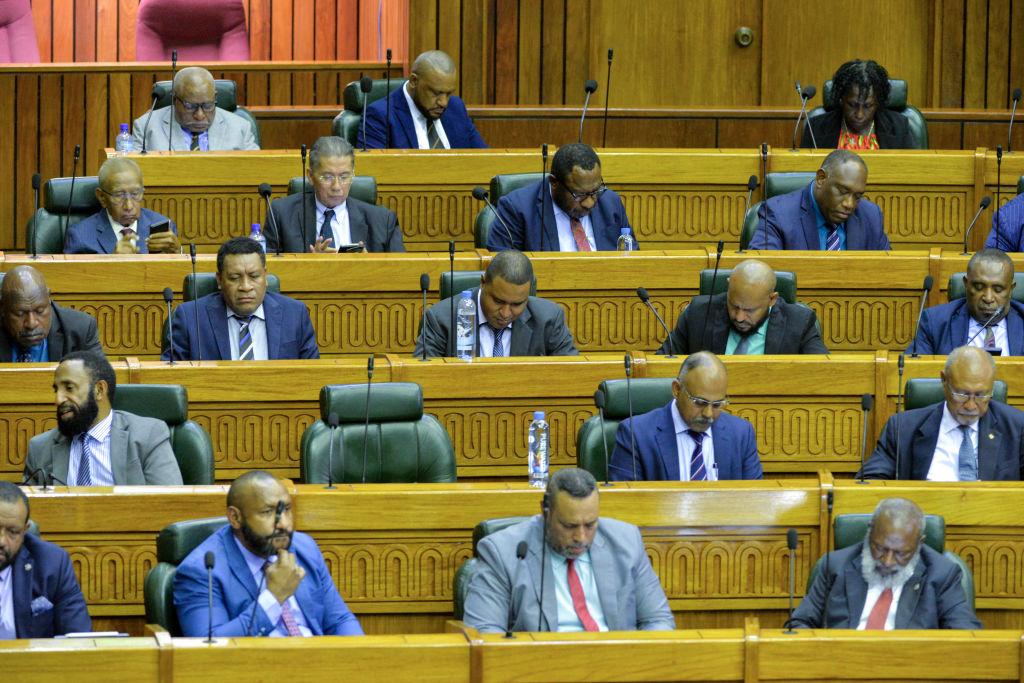A fourth attempt by Papua New Guinea’s opposition parties to unseat Prime Minister James Marape has been disallowed by Parliament’s Speaker on a technicality, causing an uproar among MPs.
Since the defection of Rainbo Paita, Mr. Marape’s former leader of government business and finance minister, and 20 other MPs—including five government ministers—in late May, the Opposition has tried and failed to bring down the government.





